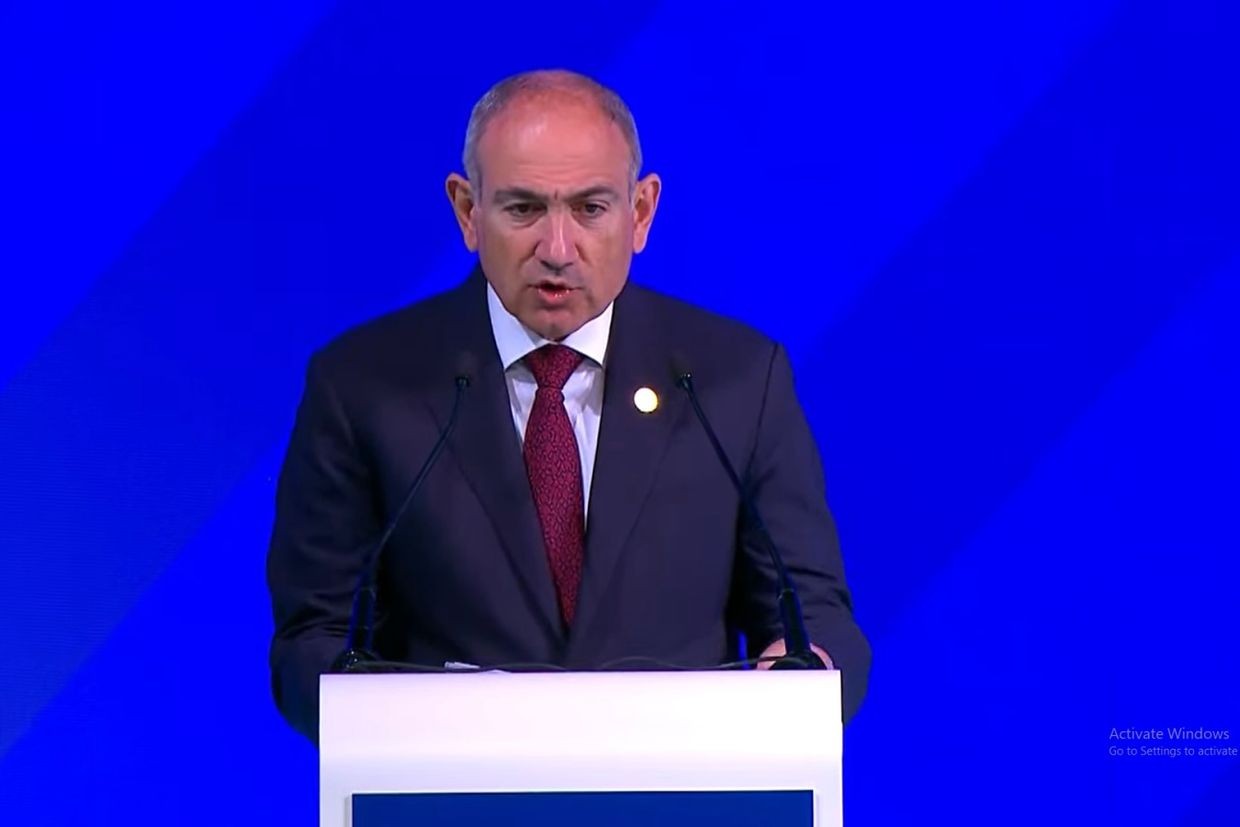
Armenian Prime Minister Nikol Pashinyan has said that a referendum on a new constitution will take place after the 2026 parliamentary elections, claiming that a new constitution should create the ‘necessary aerodynamics’ for the state’s long-term stability and provide clarity about Armenia’s political direction for decades ahead.
Speaking at the first conference of representatives of Armenia’s state bodies in Yerevan, Pashinyan said the process of adopting a new constitution should take place after the parliamentary elections to ensure what he described as a more legitimate and broadly accepted reform. He said political forces would first be able to present their constitutional agendas to voters during the campaign, with the position of the winning majority shaping the final draft.
‘The constitution must provide the necessary aerodynamics for the long-term course of the state’, Pashinyan said. ‘Aerodynamics may suffer if it is not clear whether we want to have a car, an aeroplane, or a spaceship.’
He argued that Armenia’s current constitutional order suffers from what he described as a historic detachment between citizens and the state, claiming that past constitutional referendums — notably in 1995 and in the years that followed — had failed to convince the public that the country’s legal order derived from the free will of its citizens. The adoption of a new constitution, he said, was needed to restore what he called ‘internal legitimacy’.
Pashinyan repeated his long-standing claim that legitimacy is essential for Armenia’s security, including its ability to acquire defence equipment. He specifically noted that Yerevan’s decision to ground foreign policy in the 1991 Alma-Ata Declaration — which defines the internationally recognised borders of the post-Soviet republics — had helped the country secure access to military technologies previously unavailable.
Pashinyan tied the constitutional reform agenda to a broader doctrine centred on what he described as the ‘perpetuality’ of the Armenian state. He framed statehood, identity, and citizen ‘happiness’ as interconnected goals of government policy, arguing that the effectiveness of state institutions should ultimately serve economic development.
Pashinyan used the speech to defend his government’s education-focused agenda, calling education the state’s ‘only reliable way’ to strengthen the individual and, through that, the country. He highlighted ongoing school and kindergarten construction projects and the government’s plans to expand performance-based remuneration in the public sector.
The event, attended by thousands of state employees and officials, was billed as the first gathering of its kind. Pashinyan said the conference itself was a sign of what he called a ‘state-centred consciousness’, adding that Armenia had emerged from what he described as an ‘existential crisis’ following the Second Nagorno-Karabakh War in 2020.
He concluded by urging state employees to internalise the government’s long-term vision: ‘Today, the Republic of Armenia is more independent and more sovereign than ever. We must turn this opportunity into the working psychology of every day.’









